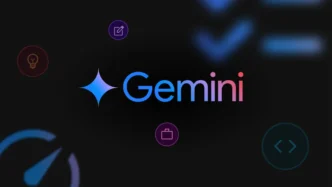OpenAI has unveiled an enhancement to its ChatGPT deep research feature, adding the ability to analyze codebases on GitHub. This new functionality, announced on Thursday, marks a significant expansion of the deep research tool, which already provides users with detailed reports by combing through various web sources. Now, developers can utilize ChatGPT deep research to interact with codebases and engineering documents directly from GitHub.
This GitHub connector is currently in beta and will be available to ChatGPT Plus, Pro, and Team users in the coming days. Support for Enterprise and Edu users is expected shortly. OpenAI’s spokesperson confirmed that this integration will open new possibilities for developers, who can now ask specific questions about their code and receive detailed insights.
The move comes as AI companies strive to enhance the capabilities of their chatbots by connecting them to popular external platforms and services. For instance, Anthropic has recently rolled out Integrations, which allow its AI chatbot, Claude, to access third-party applications. OpenAI had previously offered a plugin feature for ChatGPT, but phased it out in favor of custom chatbots known as GPTs.
OpenAI’s Head of Business Products, Nate Gonzalez, highlighted the new feature’s significance in a blog post. He mentioned that users often requested the ability to connect ChatGPT to their internal sources of information, alongside general web searches. This request led to the introduction of the GitHub connector, marking a pivotal moment in the tool’s evolution.
ChatGPT’s Deep Research and GitHub Connector Features
The GitHub connector offers several practical features for developers. Users can ask ChatGPT to break down product specifications into technical tasks and dependencies, summarize code structure and patterns, and even understand how to implement APIs with real code examples. This capability is poised to save developers significant time by assisting in the analysis of large codebases, although it is not intended to replace human expertise.
However, OpenAI has acknowledged the possibility of “hallucinations” — a common issue with AI models, where they may provide incorrect or fabricated information. Despite this, the GitHub connector is being positioned as a valuable time-saving tool for developers. A spokesperson for OpenAI confirmed that the system would respect organizational settings, ensuring users only have access to GitHub content they are authorized to view.
Secure Use of GitHub Data in ChatGPT
In addition to this update, OpenAI has made several investments in tools aimed at assisting developers with coding tasks. The company recently launched Codex CLI, an open-source terminal tool designed to aid coding, and made upgrades to the ChatGPT desktop app to improve its compatibility with a variety of developer-focused coding applications. OpenAI continues to view programming as one of the primary use cases for its AI models. As part of its commitment to enhancing this area, OpenAI has reportedly reached a deal to acquire AI-powered coding assistant Windsurf for $3 billion.
In a separate announcement, OpenAI revealed that it has rolled out new fine-tuning options for developers, allowing them to tailor its newer models for specific applications. Developers can now fine-tune the o4-mini “reasoning” model through a process known as reinforcement fine-tuning, which uses task-specific grading to refine the model’s performance. Additionally, fine-tuning is now available for OpenAI’s GPT-4.1 nano model. While fine-tuning the o4-mini is restricted to verified organizations, GPT-4.1 nano fine-tuning is accessible to all paying developers.
OpenAI began requiring verification for certain models and developer features in April, asking organizations to submit identification and other documentation to prevent abuse of the system.













